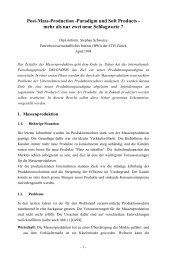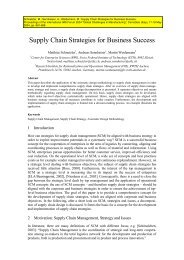The China Venture
The China Venture
The China Venture
You also want an ePaper? Increase the reach of your titles
YUMPU automatically turns print PDFs into web optimized ePapers that Google loves.
First of all, Britain’s predominant international status was dec lining at the beginning of the<br />
20 th century. Secondly, <strong>China</strong> and Japan are neighbouring countries which share the same<br />
or igin. Also Japan was the nearest modernised and westernised country to <strong>China</strong>. So it was<br />
convenient for Chinese to go to Japan to study modern Western sciences and knowledge,<br />
including law. As a result, both Chinese legislation and legal theory were substantially<br />
influenced by Japan. Since modern Japanese law was introduced from Germany, Japanese law<br />
was indirectly derived from the Roman law tradition and Chinese law followed the same path.<br />
Thirdly, it was impossible for a country like <strong>China</strong>, which had a well-established legal system<br />
with more than 4,000 years of history, to introduce common law because of the historical<br />
background and the nature of case law.<br />
In the 1930s the legal modernisation in old <strong>China</strong> came to its end. By that time, modern<br />
constitutional laws, civil laws, commercial laws, criminal laws, civil procedure laws and<br />
criminal procedure laws were introduced. This also marks the completion of the transition<br />
from the traditional Chinese law system to Roman civil law.<br />
In 1949 the People’s Republic of <strong>China</strong> (hereafter the PRC) was founded by the Communist<br />
Party of <strong>China</strong>. <strong>The</strong> Kuomintang government fled to the province of Taiwan. <strong>The</strong>re, the laws<br />
enacted on the mainland remained implemented. On the mainland however, a new legal<br />
system based on entirely different political, economic and ideological structures was<br />
established.<br />
<strong>The</strong> legal system in new <strong>China</strong> was developed by adopting that of the former Soviet Union.<br />
This new system was based on the following principles: in the economic field, public<br />
ownership and a centralised-planned economy; in the political field, people’s democratic<br />
dictatorship and the supremacy of the Party; and in the cultural and ideological field, the<br />
dominance of Marxist theory. 5<br />
In this context the idea arose that the policies of the Party and the State should be more<br />
important than legal rules, and a tendency to neglect or even violate rules and procedures for<br />
the sake of social reform appeared. As a result, law was perceived as something flexible and<br />
manipulatable. To a certain extent, this is still the dominant attitude in contemporary <strong>China</strong>.<br />
5 See the wording of the first article of the Constitution of the PRC: “<strong>The</strong> People’s Republic of <strong>China</strong> is<br />
a socialist state under the people’s democratic dictatorship led by the working class and based on the<br />
alliance of workers and peasants. <strong>The</strong> socialist system is the basic system of the People’s Republic of<br />
<strong>China</strong>. Disruption of the socialist state by any organisation or individual is prohibited.”<br />
9






